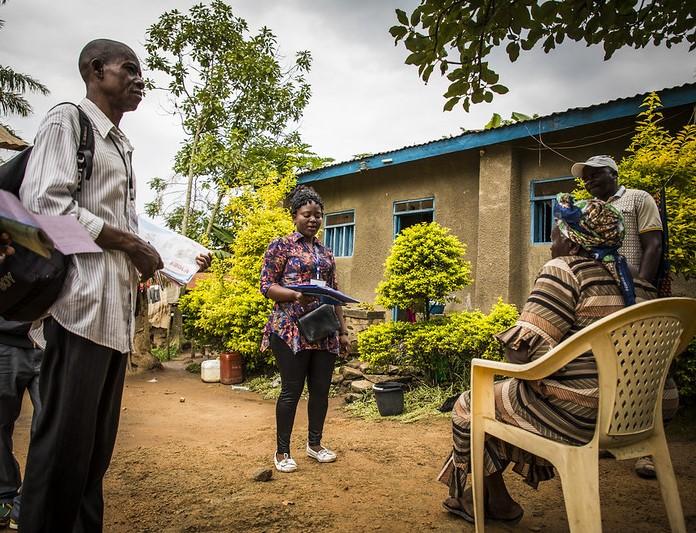Two more Ebola infections were reported in the Democratic Republic of the Congo (DRC) today, with the World Health Organization (WHO) detailing some of effects that attacks and insecurity have had on the response in recent weeks and a key response group pulling staff out of one health zone.
Challenges in volatile areas
For the week ending Dec 3, 9 new cases were reported, 5 in Mandima and 4 in Mabalako, the WHO said in its weekly outbreak snapshot yesterday.
It said security incidents have slowed the volume and investigation of health alerts, as well as the number of contacts recorded and monitored. The number of health alerts in the conflict-ridden areas trended lower than usual over the past 7 days.
The overall percentage of contacts under monitoring was 70% over the past week, lower than before the security incidents. The decrease was spurred by suboptimal performance in some areas of Beni, Mabalako, and Oicha. The WHO said the numbers are improving slowly, but it said the fluctuations underscore the continued impact insecurity is still having on the outbreak response.
Over the past 21 days, most cases were linked to known transmission chains, but a higher proportion of confirmed infections were linked to exposure to the virus at funerals. The WHO said there were two recent funeral-linked clusters, one in Lwemba that resulted in six cases and one in Bingo that led to two cases. The people who died were listed as probable cases.
New cases, disruption in DRC
The two new cases reflected today on the WHO's online Ebola dashboard bring the outbreak total to 3,320. Health officials are still investigating 357 suspected cases.
Two more people died from their infections, lifting the fatality count to 2,206.
The DRC's Ebola technical committee (CMRE) today had details about the five cases reported yesterday. Three were in Beni, and Mabalako and Oicha each had one case.
One health worker is among the newly confirmed cases in Mabalako, raising the number of health workers sickened in the outbreak to 164, which includes 41 deaths.
Response activities are still paralyzed in Beni, Mangina, and Biakato, the CMRE said. It added that immunization efforts continue, including a new vaccine ring of 60 contacts or of contacts of contacts that opened around a recently confirmed case in Beni.
MSF withdraws from Biakato
The violence has gotten so bad in Biakato, in fact, that Doctors Without Borders (MSF) said today it has temporarily withdrawn its staff from that region of Ituri province.
In a news release, the nonprofit group said that a group of people armed with sticks and machetes entered the Biakato health center in the early morning of Dec 3. They didn't reach the center's Ebola treatment unit, and no one was harmed. The same night, however, a similarly armed group attempted to enter the MSF compound in Biakato Mines. They threw rocks at the compound but were unsuccessful in entering it, and, again, no one was injured.
The events follow a deadly attack against Ebola responders in Biakato in late November.
"MSF cannot work if the security of our staff and patients is not ensured," the group said. "It is not clear yet who was responsible for the attempted intrusion on the compound or into the health centre, nor are the motivations behind those actions clear.
"As we are not currently able to guarantee that the necessary security conditions to work have been met, MSF decided to temporarily withdraw our staff from the Biakato region. The decision to leave this community, with whom we have worked very closely over the past few years, was extremely hard to take."
MSF said it left essential supplies with the DRC health ministry to continue response efforts in Biakato, and it hopes to be able to return soon to the area.
Vaccine trial launch in Japan
Researchers from the University of Tokyo, meanwhile, announced yesterday that they will begin a clinical trial of a developmental Ebola vaccine later this month, Kyodo News reported.
The vaccine contains an artificially produced detoxified virus and has been shown to be safe and to prompt an good immune response in animal studies. It was developed by a team led by Yoshihiro Kawaoka, DVM, PhD, and is intended to produce fewer side effects.
The clinical study, the first involving Ebola vaccine in Japan, will take place at a hospital affiliated with the university, and 30 healthy adult men are slated to receive an intramuscular injection and be monitored for 6 months to gauge vaccine safety.
See also:
Dec 5 WHO update
Dec 5 CMRE report
Dec 6 MSF news release
Dec 6 Kyodo news story



















